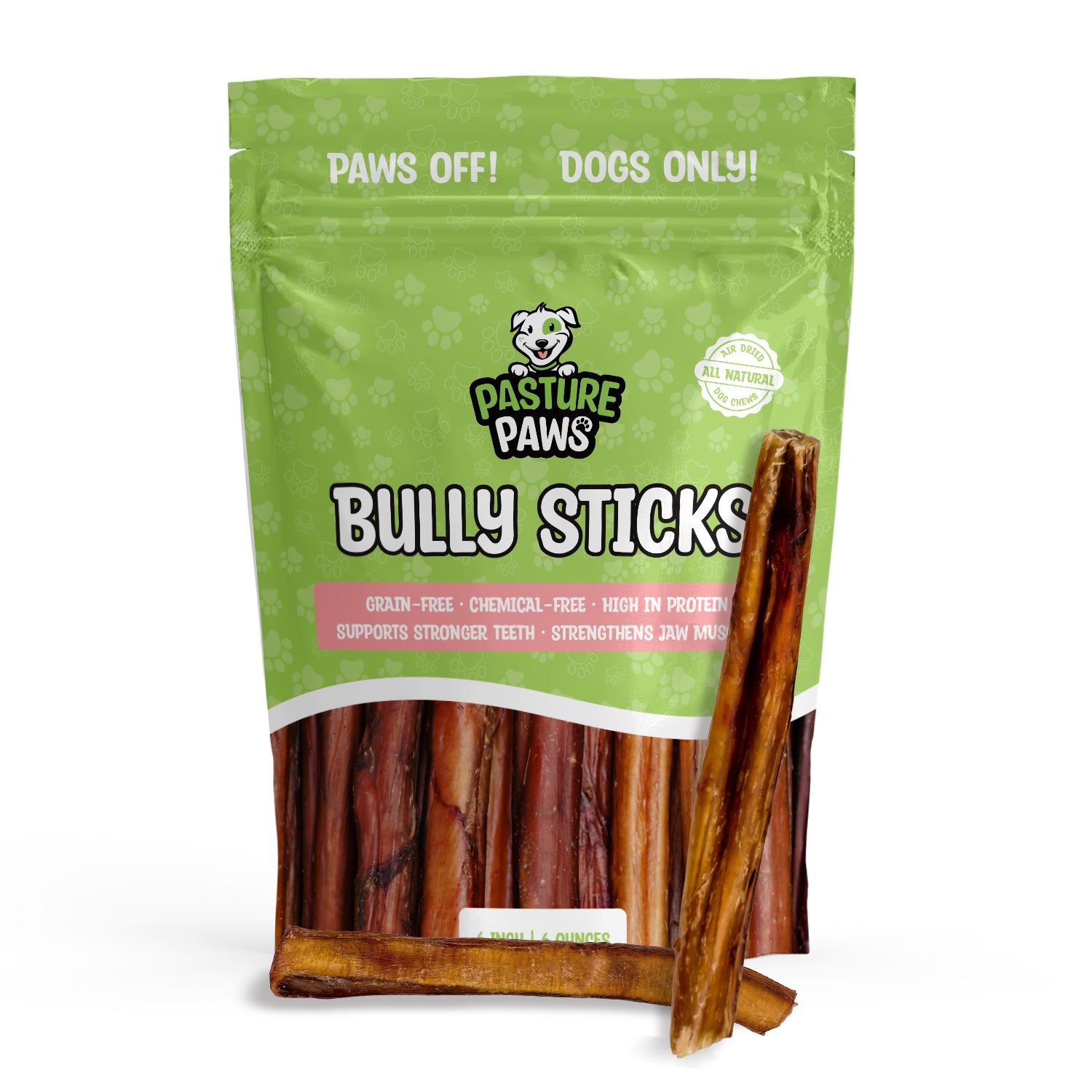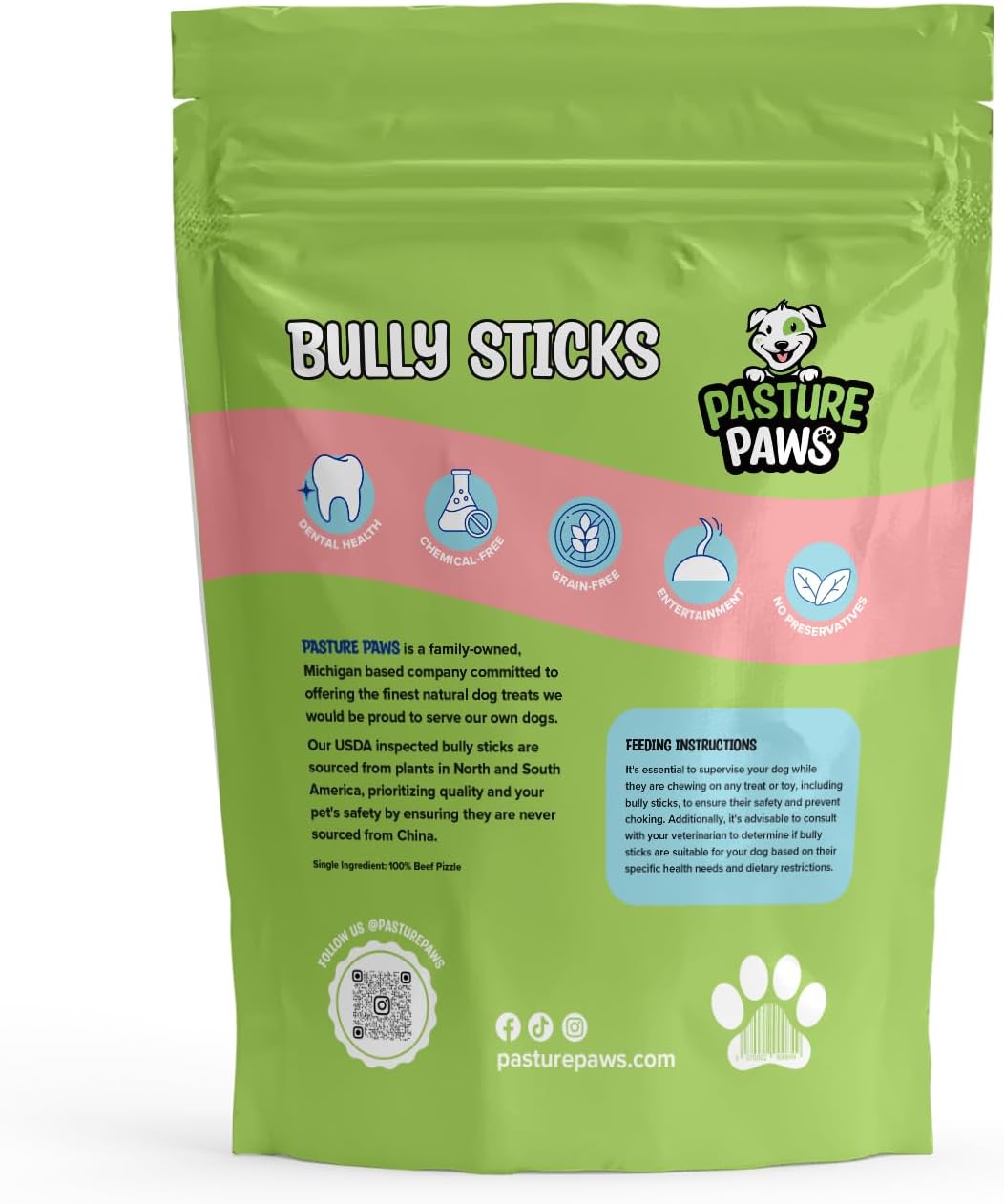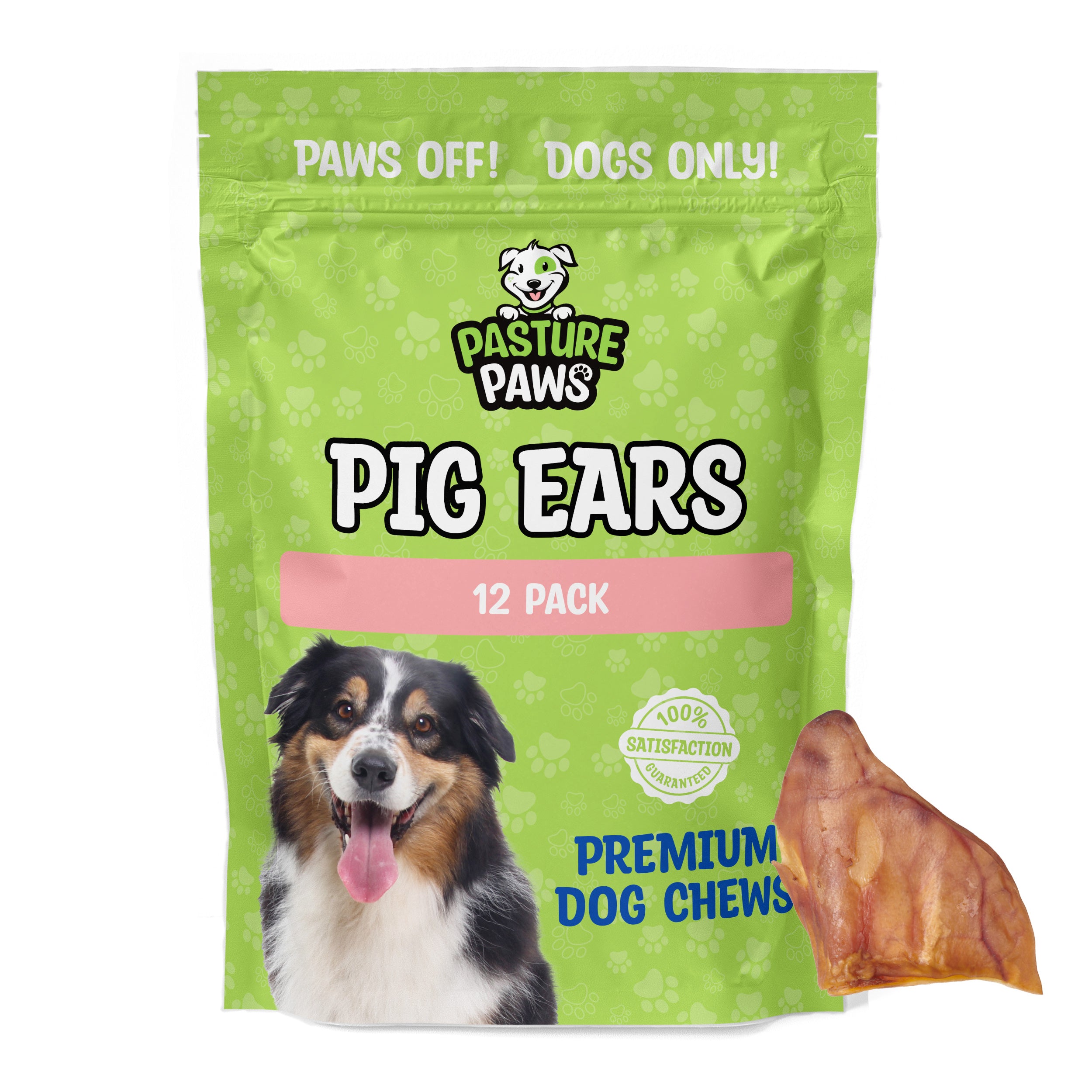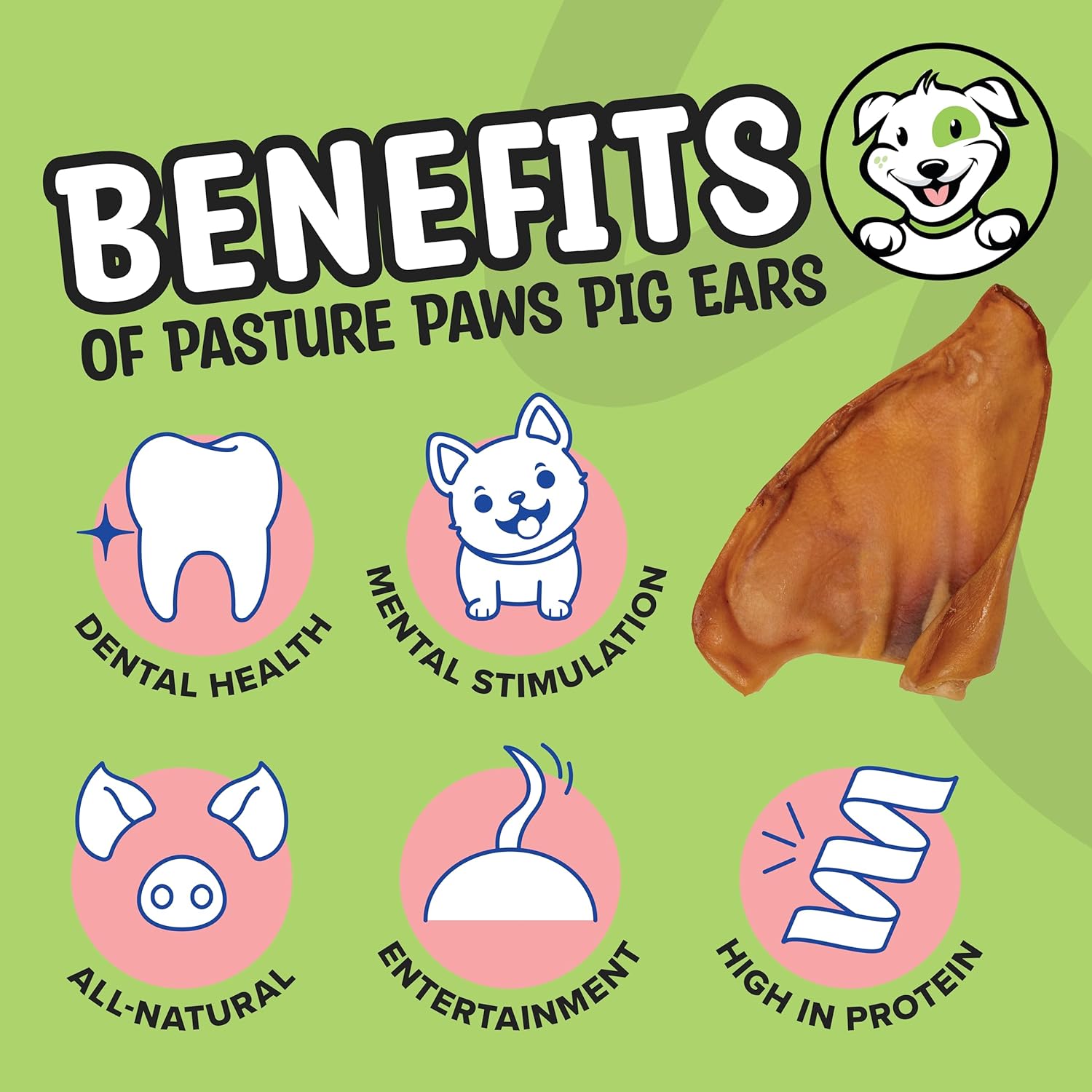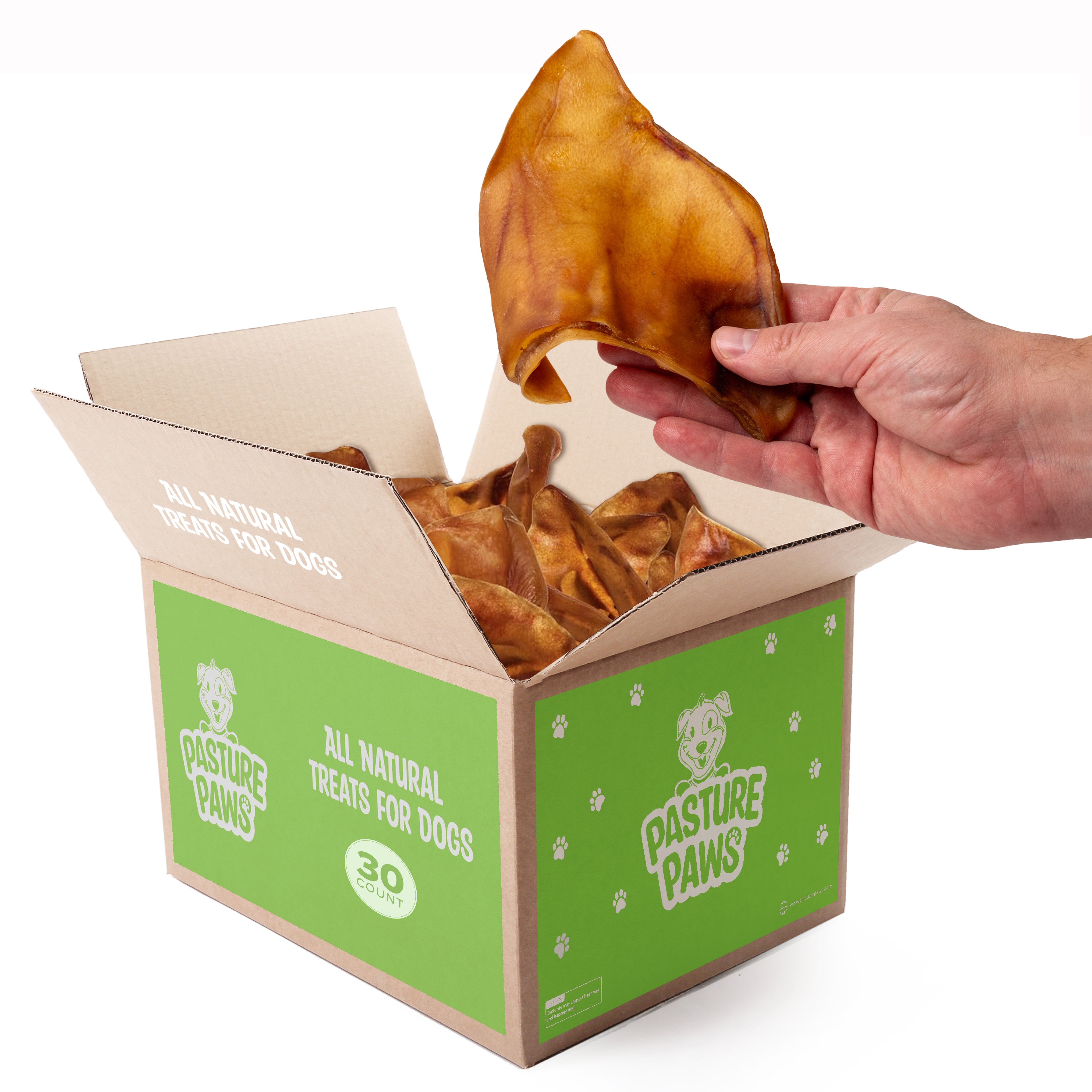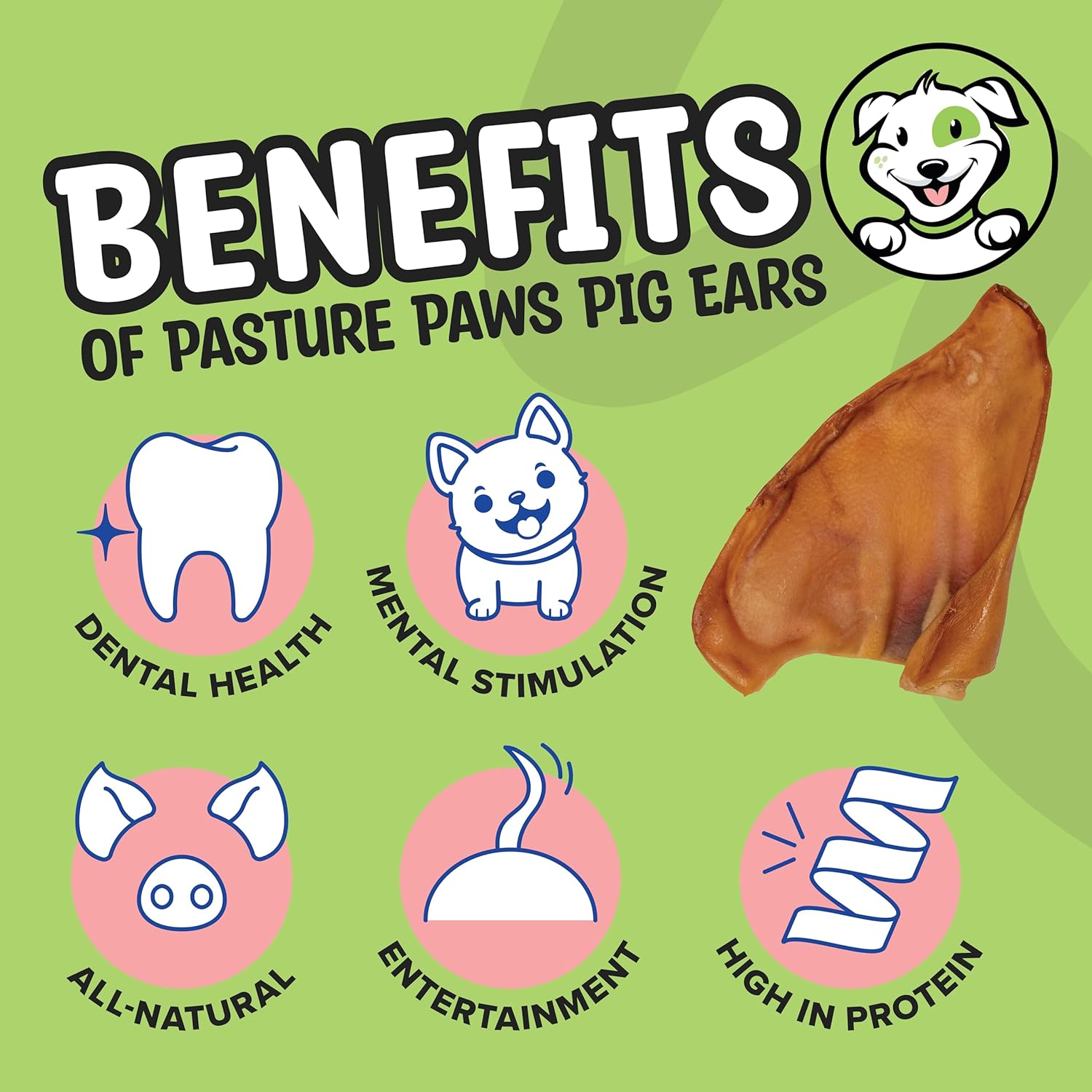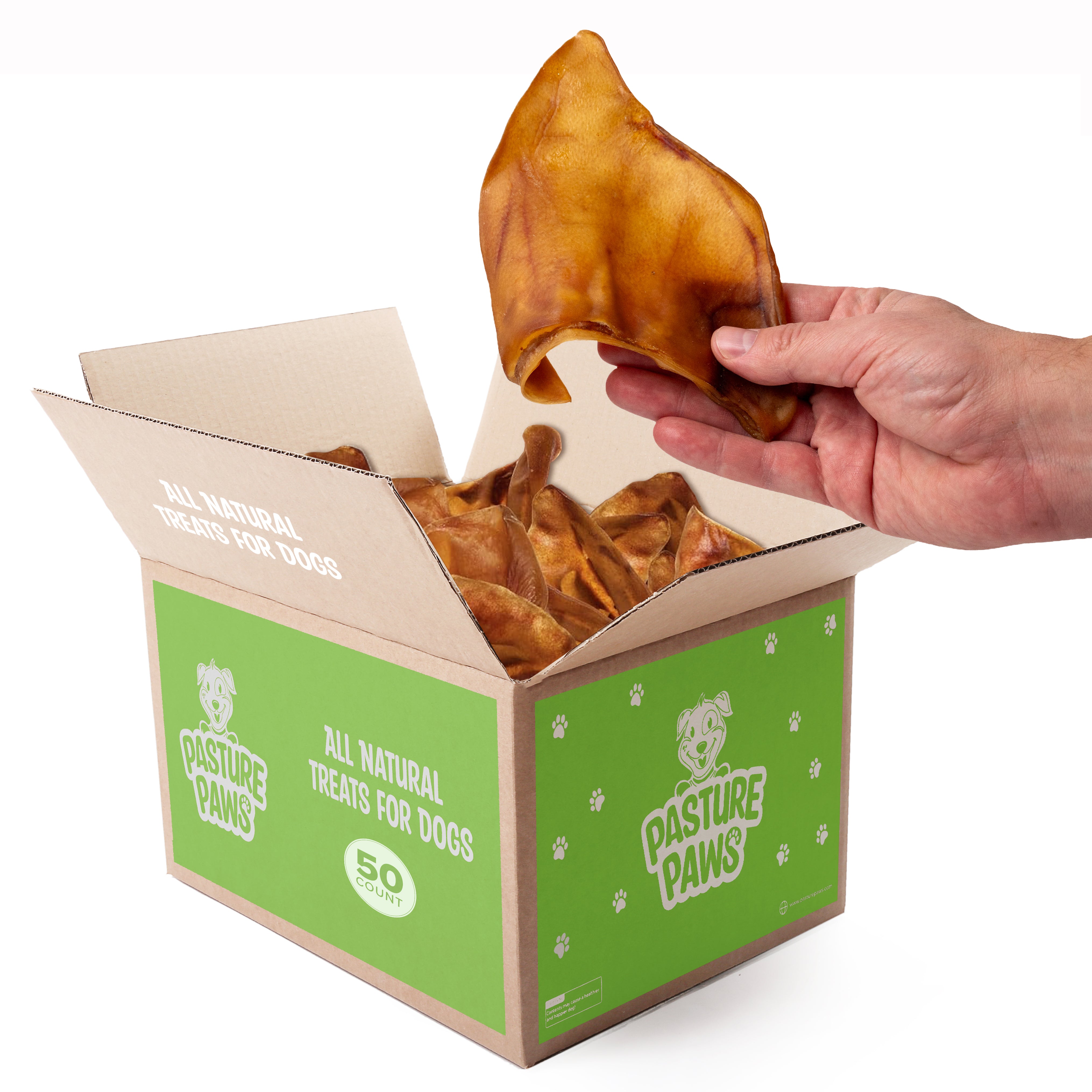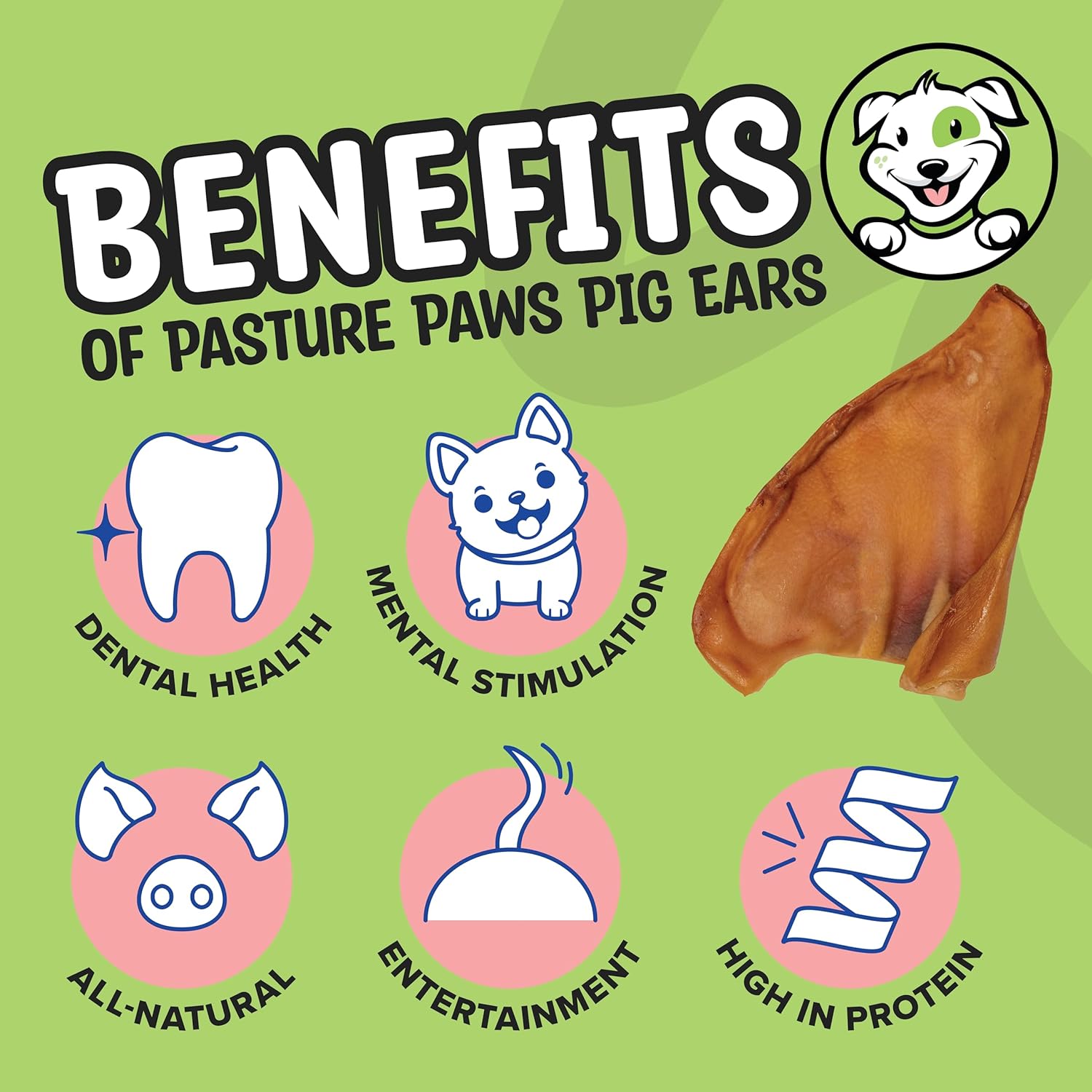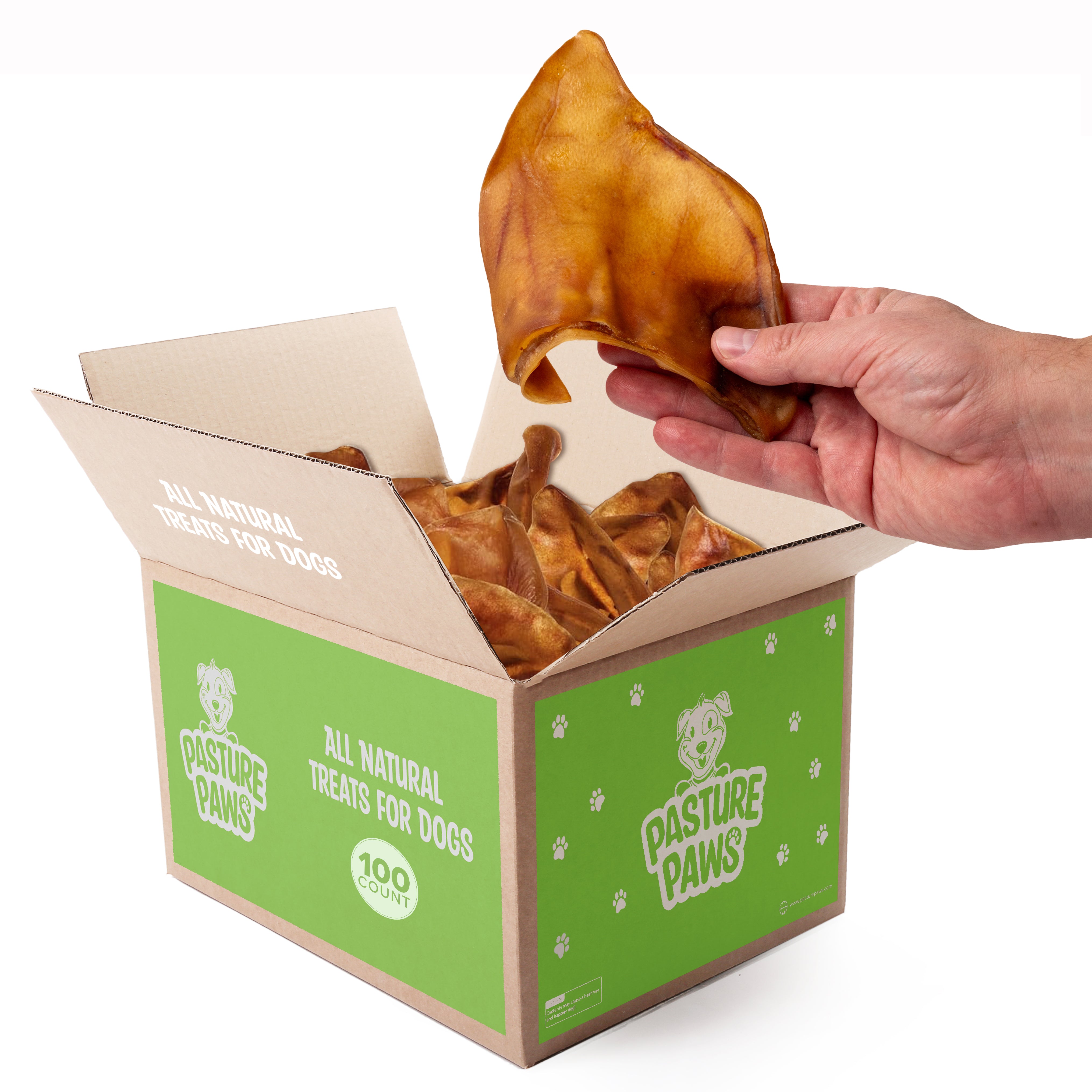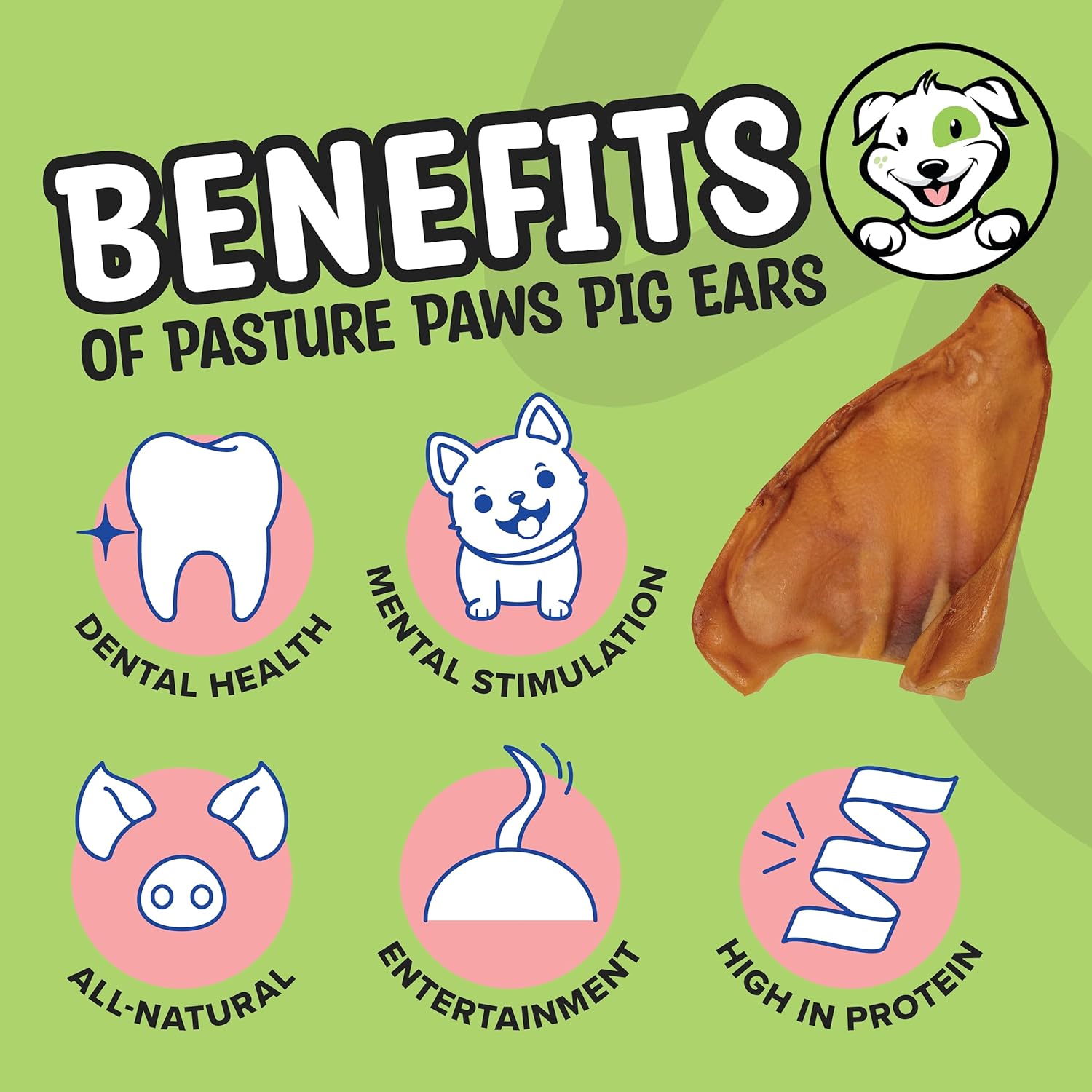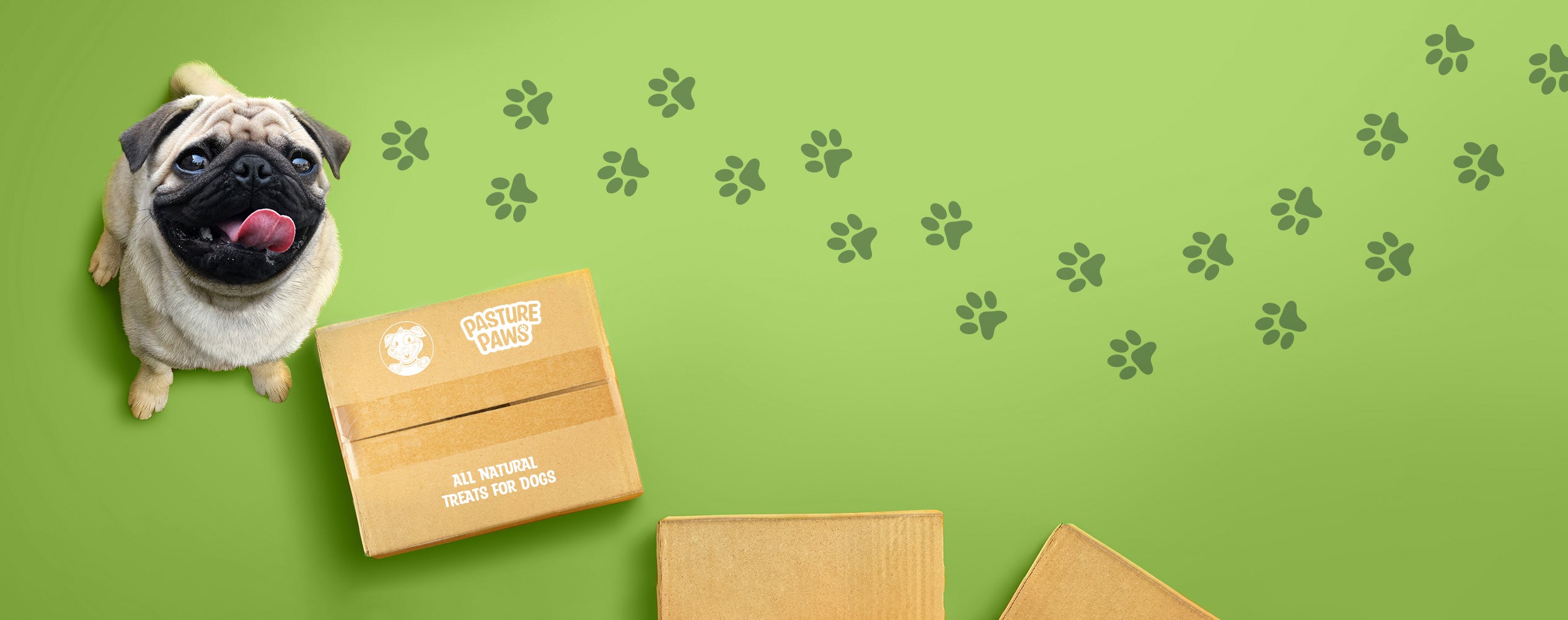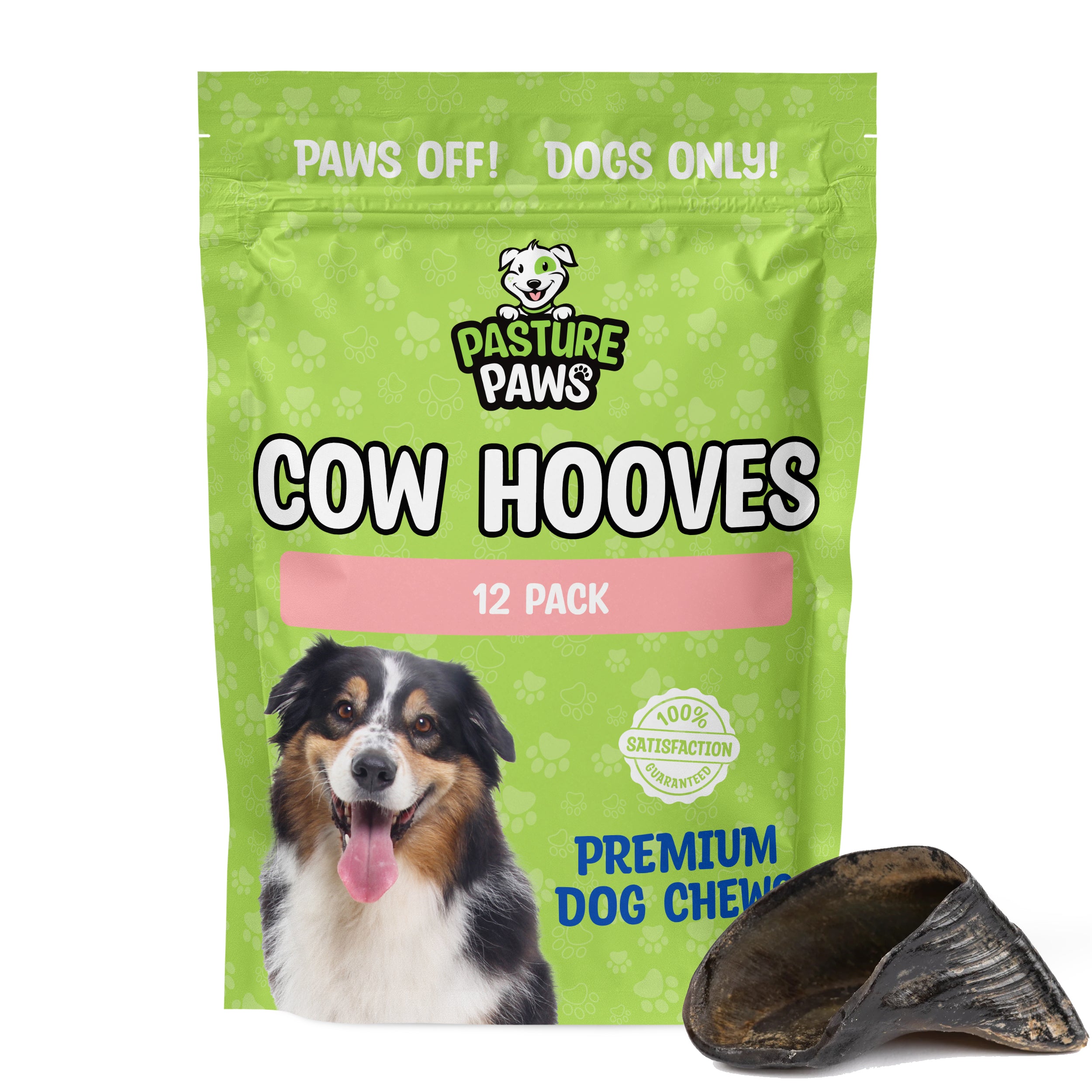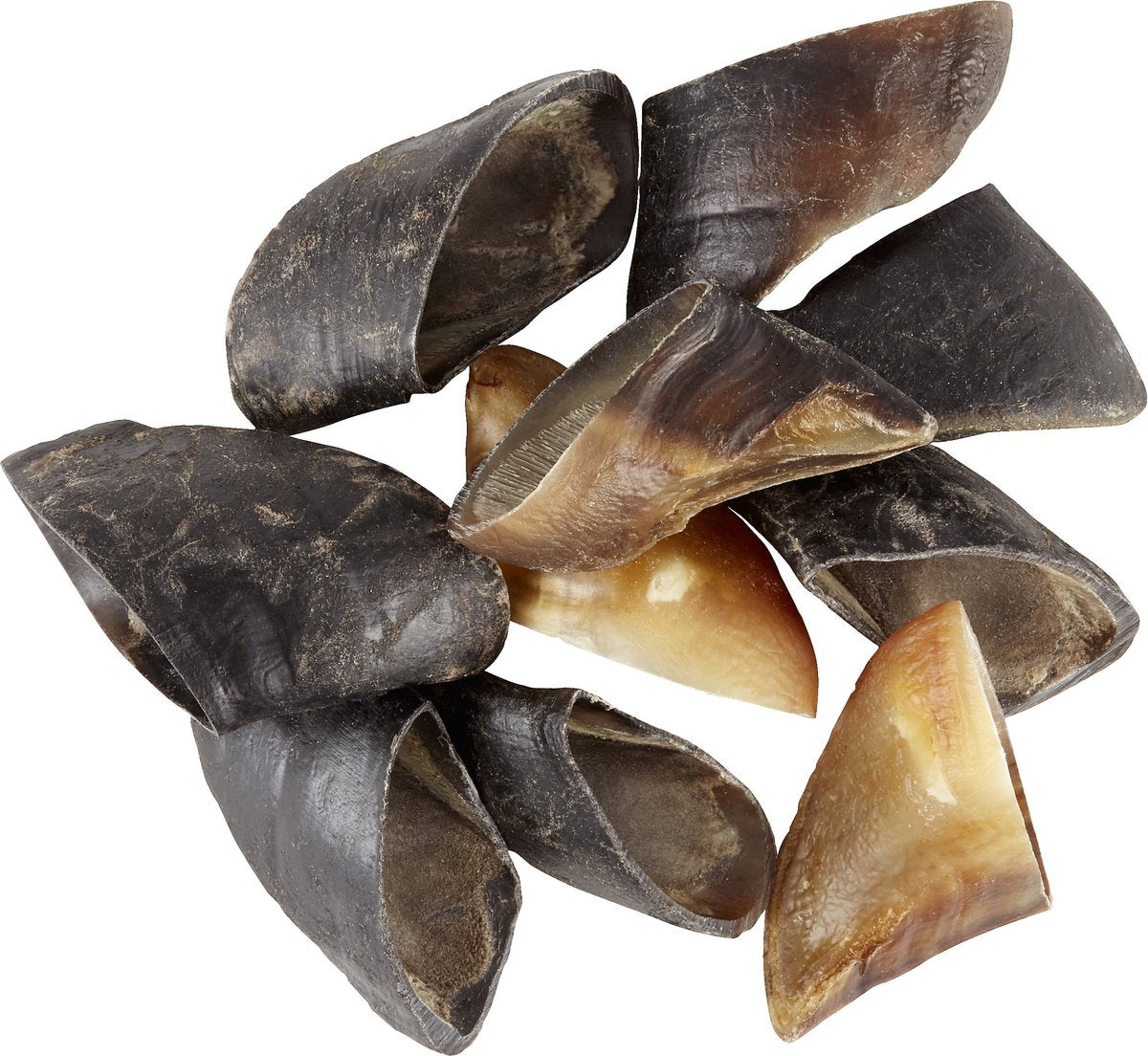Discover the ultimate in canine satisfaction with our Cow Hooves at Pasture Paws. Sourced from pasture-raised cattle and crafted with meticulous care, our Cow Hooves redefine chew time for your beloved pet. Each hoof offers a robust, natural chew that promotes dental health and satisfies your dog's instinctual urge to chew.
Pamper your pet with our premium dog chews: Thick Odor-Free Bully Sticks, Beef Knee Caps, Cow Hooves. Discover the full range at Pasture Paws and treat your dog to the best they deserve.
Discover the Benefits of Cow Hooves for Dog
Cow hooves offer natural dental care for dogs, helping to clean teeth and gums as they chew. Their tough texture promotes healthy chewing habits and satisfies your dog's instinctual urge to chew.
Dental Health Support
Cow hooves are naturally abrasive, helping to reduce plaque buildup and maintain dental hygiene in dogs. Regular chewing can also minimize tartar formation, supporting overall oral health.
Long-Lasting Entertainment
These durable chews provide extended enjoyment for your dog, keeping them engaged and entertained while promoting healthy chewing behaviors.
Natural and Nutritious
Sourced from pasture-raised cattle, cow hooves are a natural treat rich in essential nutrients like protein and minerals, offering a wholesome option for your dog's diet.
Discover the Unique Features of Cow Hooves
Cow hooves are a top choice for dog owners seeking natural, nutritious, and engaging chews. Made from high-quality cattle, these treats offer numerous benefits for your dog's health and happiness.
All-Natural & Nutritious
Our cow hooves come from grass-fed, free-range cattle, ensuring they are 100% natural with no artificial additives, preservatives, or flavors. Packed with essential nutrients and minerals, they support your dog's overall health and well-being.
Promotes Dental Health
The tough texture of cow hooves helps clean your dog’s teeth and gums naturally as they chew, reducing plaque and tartar buildup. Regular chewing also contributes to fresher breath and improved oral hygiene.
Long-Lasting & Engaging
Known for their durability, cow hooves provide hours of chewing pleasure for dogs of all sizes. They are excellent for relieving boredom and reducing stress, making them perfect for active or anxious dogs.
Recommended Articles
Are Cow Hooves Safe for Dogs? A Veterinarian's Perspective
Can Dog Eat Cow Hooves? A Comprehensive Guide to Feeding Your Canine
Frequently Asked Questions
What to Put in Cow Hooves for Dogs?
Cow hooves can be stuffed with various fillings to make them even more enticing for your dog. Popular options include peanut butter, canned pumpkin, or a mix of your dog's favorite treats and kibble. Freezing the stuffed hooves can make the treat last even longer and provide additional enrichment.
Are Cow Hooves Healthy?
Yes, cow hooves are healthy for dogs when sourced from high-quality, grass-fed, free-range cattle. They are 100% natural with no artificial additives, preservatives, or flavors, and are packed with essential nutrients and minerals that support your dog's overall health and well-being. Additionally, their tough texture helps promote dental health.
How Do You Moisturize Hooves?
To moisturize cow hooves, you can soak them in warm water for a few hours. This process can soften the hooves slightly, making them less likely to splinter and more enjoyable for dogs to chew on. However, always supervise your dog while they are chewing to ensure their safety.
What Chew Bones Do Vets Recommend?
Veterinarians often recommend chew bones that are safe, durable, and promote dental health. Some popular choices include rawhide alternatives, dental chews, and certain types of natural bones like bully sticks. It's important to choose a chew that is appropriate for your dog's size, chewing style, and health needs.
Can I Give a Cow's Hoof to My Puppy?
Cow hooves can be given to puppies, but with caution. Make sure the hoof is an appropriate size for your puppy and monitor them closely while they chew to prevent any potential choking hazards or dental damage. It’s also wise to consult your veterinarian before introducing any new chews to your puppy’s diet.
